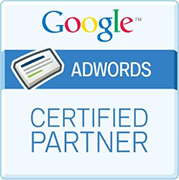If you’re not quite sure how SEO works, it can seem like a bit of an arcane mystery.
Maybe you’ve heard the term a couple of times but don’t really know what it is or what it involves. Perhaps you just don’t think it’s relevant to your small or very new business.
It might also be rather daunting. With all of the jargon that surrounds digital marketing – SEM, PPC, ROIs, KPIs, CTCs, CTRs, USPs, and so many others – it can all sound strange to a person not actually working in the industry.
But regardless of how scary or unfamiliar digital marketing might appear, it’s actually essential for the health and growth of your business and your brand’s online presence.
SEO is a digital marketing channel that’s particularly misunderstood, both by people working in marketing and those outside it. It’s swamped in many myths and misconceptions, many of which are frequently perpetuated by less-than-scrupulous digital marketing firms, or people who simply don’t realise that Google’s algorithm has actually changed in the past ten years.
We want to simplify SEO for you – to unveil the mystery – so we’ve broken it down into thirteen common, essential questions and answers.
1. What is SEO?

SEO stands for “Search Engine Optimisation”. It refers to a number of different techniques and strategies geared towards making your website more visible in organic (non-paid) search engine results.
Ultimately, SEO is the practice of editing a website in order to increase the volume of traffic the site receives via search engines like Google.
There are many components to SEO, from the content and image formatting on your site, to the way other sites link to yours. Sometimes, SEO is simply a matter of ensuring that your website is structured in a way that Google understands and recognises.
2. What are organic listings?

Organic listings are search engine results that have been obtained “naturally”, and haven’t been purchased through advertising.
They are calculated by Google’s algorithm and are based on the quality of the listed pages.
The ranking might arise from gaining links via popular or authoritative sites, or by offering valuable, relevant content.
Typically, organic listings appear underneath paid listings.
Non-organic listings, on the other hand, are the links that advertisers pay to appear on search engines, and these appear at the top or side the search results page.
PPC (“Pay Per Click”), which we’ll talk about in a second, is another highly directional digital marketing tool, involves non-organic search results.
3. How is SEO different to PPC?

Also known as Google AdWords, PPC is a digital marketing model used in order to direct traffic to websites. In this sense, because it deals with search engine marketing, it is not dissimilar to SEO.
PPC allows advertisers to pay a fee every time one of their ads is clicked. Essentially, it’s a way of buying visits to your site, rather than attempting to “earn” those visits organically.
Ultimately, then, main difference between SEO and PPC is that traffic coming from SEO (organic) is free, while the traffic generated from PPC is not free - as the name suggests, you have to pay a price per click.
4. Why does my website need SEO?

The goal of most websites is to generate traffic and to draw visitors to either seek out information or to buy products or services.
But how do visitors find their way there in the first place? Research by Forrester shows that 93% of all internet traffic comes from search engines like Google.
You want your business to appear as high up in search engine results as possible – preferably on the first page. Research bv HubSpot also shows that 75% of users don’t even scroll past the first page of search engine results.
A high ranking translates to increased findability and visibility, more targeted visits, increased brand awareness, a higher reach, and an edge on your competition.
5. What are keywords?

A keyword is a word or phrase that a prospective customer types into a search engine like Google to find a service or product.
For example, if you bake and sell cupcakes, some relevant keywords might be “Fresh homemade cupcakes” or “Cupcakes made to order”.
Your SEO keywords are particular words and phrases in your website’s content that make it easier for people to find your site via search engines.
A website that’s optimised for search engines "speaks the same language" as its visitors with keywords that help connect customers to your site.
In other words, you need to know what terms people are using to look for the products, services or information you offer in order to make it easy for them to find you. Devising a solid keyword strategy will help your site rank highly (and above your competitors).
Keywords should be utilised on your website in places like:
- Meta titles and tags (more on these in a moment)
- URLs
- Content
- Page titles
- Images
6. How does Google’s algorithm work?

Usually, finding useful, relevant information online is something most of us now take for granted.
However, the task of actually sifting through every website that exists to find helpful information would be monumental. That's why search engines like Google use highly complex, sophisticated algorithms.
Instead of making you go through this epic process yourself, Google's algorithm does the hard work for you by searching out pages that contain the keywords you use to search. It then assigns a rank to each page based on a number of different factors (we’ll look at some of these in a moment).
Highly ranked pages appear higher up on Google's search engine results page. This means (at least theoretically) that the best and most relevant links relating to your search query are the first ones on Google’s lists.
The rules which govern Google’s ever-changing algorithm provide a subject of considerable controversy in digital marketing circles. That is to say, the precise details are a mystery. Digital marketers spend a lot of time guessing, second-guessing and debating these rules, but precisely how Google’s algorithm works is a closely guarded secret.
As we mentioned earlier, this has resulted in the attribution of certain mystical, mythical properties to said algorithm, and in the circulation of some peculiar trends and misconceptions.
However, Google does release a number of guidelines for optimising your website. Although this is by no means comprehensive, some things that we know are ranked highly by Google – and will subsequently make you more visible – include:
- High-quality, original content
- User experience
- Mobile compatibility
- Authority and relevance
- Relevance of backlinks / inbound links
- Well-placed and well-chosen keywords
You’ll notice that, for the most part, a lot of these optimisation guidelines simply relate to providing an optimally friendly user experience, which is what we all want out of a website anyway.
None of these elements actually involve any kind of trickery or cloak-and-dagger foolery, as in the early days of SEO, where people would engage in all manner of dubious tactics and strategies in order to “trick” the search engines (needless to say, this no longer works).
While executing an effective SEO campaign is actually quite complex and involved – and is best done by a seasoned professional – it’s not the obscure mystery a lot of digital marketers make it out to be.
7. What are meta tags and titles?

In the simplest terms, these are the page descriptors that Google reads and uses to work out what your page is about.
When Google’s algorithm evaluates your page for relevance, it checks these tags and titles against the search terms.
This has one of the biggest effects on your page ranking. To ensure you have the highest page rank possible, you need to carefully select the keywords you insert into your meta titles and meta tags.
8. How long does it take to see results?

Short answer: it depends.
There are a number of different factors that will determine how quickly your SEO campaign will yield results.
This list includes, but isn't limited to:
- How much content you create
- The quality of your content
- How the content goes down with your audience
- If you're a big or small site
- The strength of your domain authority
It should be noted, however, that SEO is a long-term endeavour. It takes time ramping up to where you can see and maintain favourable results. It has a slow-burn kind of effect, and therefore requires some patience.
Make no mistake - SEO gets powerful results. It just takes time. While your initial ranking may be fairly good, you must update keywords and build trust between you and Google in order to keep rising.
Therefore, SEO may not be appropriate for a business that wants to see instant results. A PPC campaign, which shows almost immediate results, may be better suited if this were the case.
This is also one of the reasons why SEO and PPC work so well in tandem, as with many digital marketing channels - so many of these tools are especially effective when used in sync. A very sound strategy is to use PPC to generate website traffic rapidly while your SEO rank slowly builds.
9. Is SEO right for my business?

All businesses of any shape and size can benefit significantly from an SEO campaign. However, as mentioned above, it may not be the most suitable option for a business that wants to see instant results.
Generally speaking, SEO is ideal for a business when:
Consistent results are needed
Like we said, SEO’s effectiveness takes time to build. Getting to the first page of search engine results won’t happen overnight, or even in a week.
However, once your website gets there via SEO, you’ll be able to enjoy sustained traffic. And if you keep up with your SEO campaign, working to manage, maintain and improve results, you’ll be able to stay on top for a long time and reap long-term benefits.
You want to establish your site as an authority
An authority website is an established resource space for a particular area of specialisation. It is the “go-to” place when people need certain types of expert information.
The best way to establish an authority site is by sustainably generating traffic to your pages, eventually building up a reputation until it becomes popular enough to dominate its market.
And the only way to do this is by providing genuinely valuable, relevant, original, well-written content powered by astute SEO planning.
10. Can you guarantee me a number-one ranking on Google?

No! And no-one should!
Consider it a red flag if a web design company claims to be able to do this, or claims to have an insider relationship with Google that will get you priority search results rankings.
Only Google can control how high or low websites appear in their search results.
11. What’s a realistic goal to set for your SEO?

It’s undeniable that being at the top of Google is a great position, and it will certainly drive traffic. However, realistically speaking, the goal for SEO should be getting your website to the first page.
It has been shown again and again that when customers use Google, they will cross-reference their searches across the entire first page.
However, searchers will rarely go past the third page, which provides a very good reason to do SEO in the first place.
12. Can I do it myself?

As mentioned earlier, SEO is a process that takes a lot of time and effort. And it’s a specialised skill that requires a considerable amount of experience and knowledge to get right.
Getting a digital marketing expert to develop and manage your SEO campaign is ideal, especially for a business owner with limited time (and no marketing qualifications themselves).
An expert will be able to precisely research the right keywords and tailor a sound campaign to suit your target audience, industry, location and particular business needs.
13. How much does it cost to hire an SEO professional?

Again: it depends.
A range of factors will determine how much you’ll need to be investing in an SEO campaign.
These include:
- The size of your business
- The size of your website
- The size of the digital marketing firm itself
- How many different areas you want to target
- Your target market
- Your competition
- Whether this will be a one-off project or an ongoing one














Get posting!
If you need some help from a social media specialist, talk to one of our experts today – if you are a current client, call 1300 883 639 – call (213) 634-1668 if you are a new client.







